Centre for Media and Women’s Empowerment Champions Period Education on Menstrual Hygiene Day
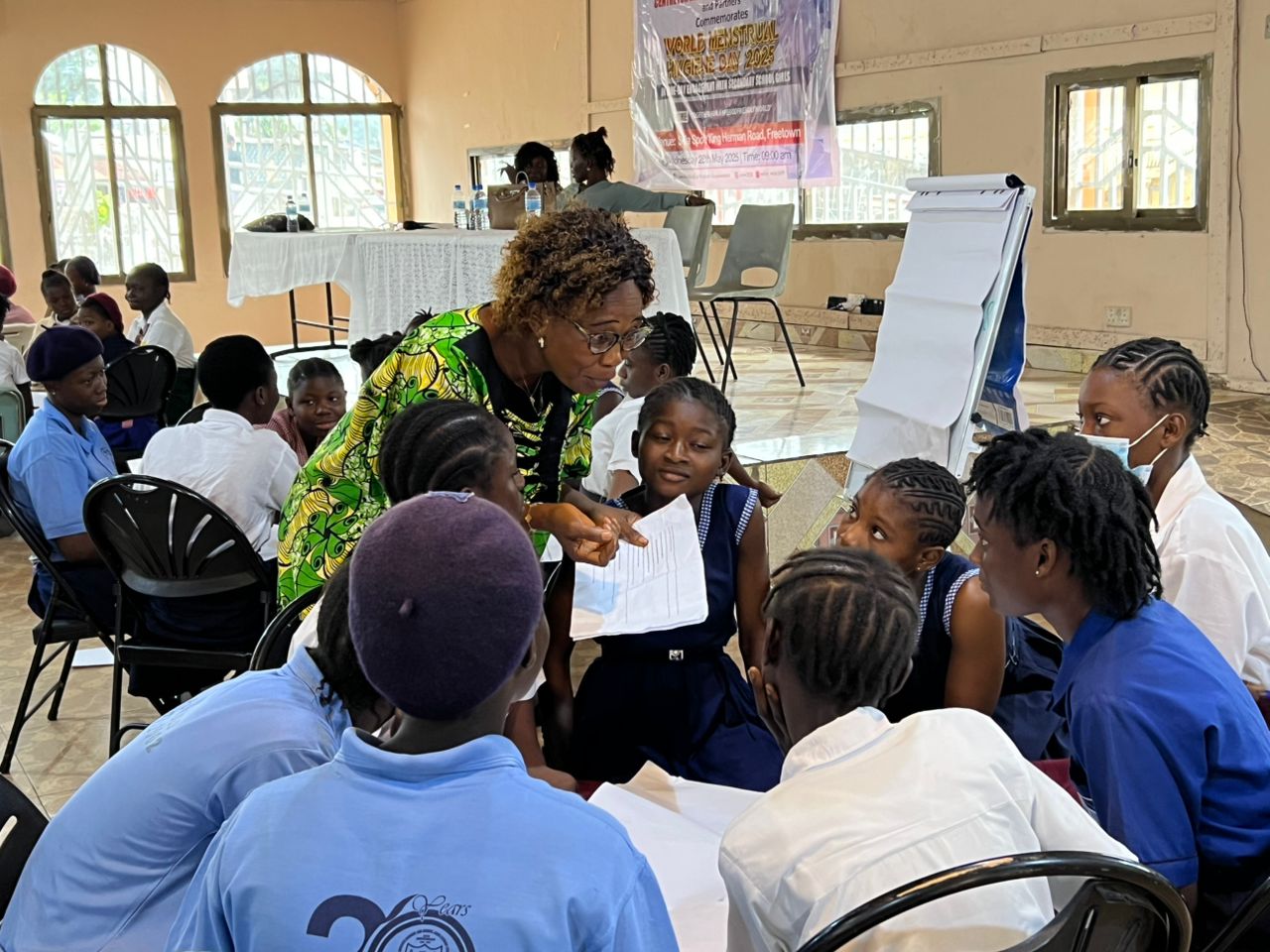
In a bold effort to break taboos and promote dignity around menstruation, the Centre for Media and Women’s Empowerment commemorated World Menstrual Hygiene Day on Wednesday, May 28, 2025, with a powerful awareness and education event held at Sella Spot, King Harman Road.
The program brought together students from various secondary schools, teachers, health practitioners, media representatives, and civil society organizations, all united under this year’s global theme: “Together for a #PeriodFriendlyWorld.”
The event aimed to raise awareness about menstrual hygiene, challenge harmful myths, and empower girls to manage their periods with confidence and knowledge. Through interactive presentations, expert talks, and open dialogue, participants were educated on the importance of menstrual health and hygiene as a human rights and public health issue.
In her keynote address, Mrs. Cecilia Bangura, Vice President of the Women’s Forum Network, emphasized the urgent need to end period stigma and prioritize menstrual health in schools, homes, and communities. She reminded the audience that menstruation is a natural biological process, not something to be ashamed of.
“When girls are forced to stay home or feel embarrassed during their periods, we are failing them,” Mrs. Bangura stated. “Period poverty and silence are barriers to education and equality, and we must confront them head-on.”
A major highlight of the program was a presentation on menstrual hygiene education led by Mrs. Aminata Ngegba from the Aberdeen Women’s Centre. She delivered a practical and engaging session on the menstrual cycle, hygiene practices, and proper use of sanitary materials. She also addressed common misconceptions and answered questions from students and teachers.
“Every girl deserves to understand what’s happening in her body and how to care for herself during menstruation,” Mrs. Ngegba said. “Education and access go hand in hand.”
Students received hygiene kits including sanitary pads, soap, napkins, lotions, and other essential items—an important step toward reducing period poverty and improving personal care among adolescent girls.
Throughout the event, media and civil society leaders pledged to take the message beyond the venue and use their platforms to normalize conversations around menstruation, especially in underserved and rural communities.
The closing remarks were delivered by Ms. Sarah Israella Koroma, Programs Manager of the Centre for Media and Women’s Empowerment. She thanked all attendees, speakers, schools, and partners for being part of a meaningful and transformative day.
In her remarks, she said, “Today’s gathering reminds us of the power of education and awareness in breaking silence around menstrual health. What we’ve started here must continue in our homes, schools, and communities. Let’s keep the conversation alive and ensure no girl is left behind because of her period.”
She concluded by commending the team’s dedication and reaffirming the Centre’s commitment to menstrual health education.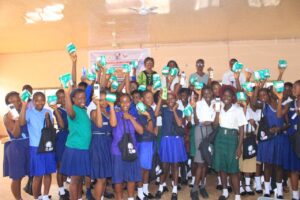

Community outreach on SGBV in Jadia Town
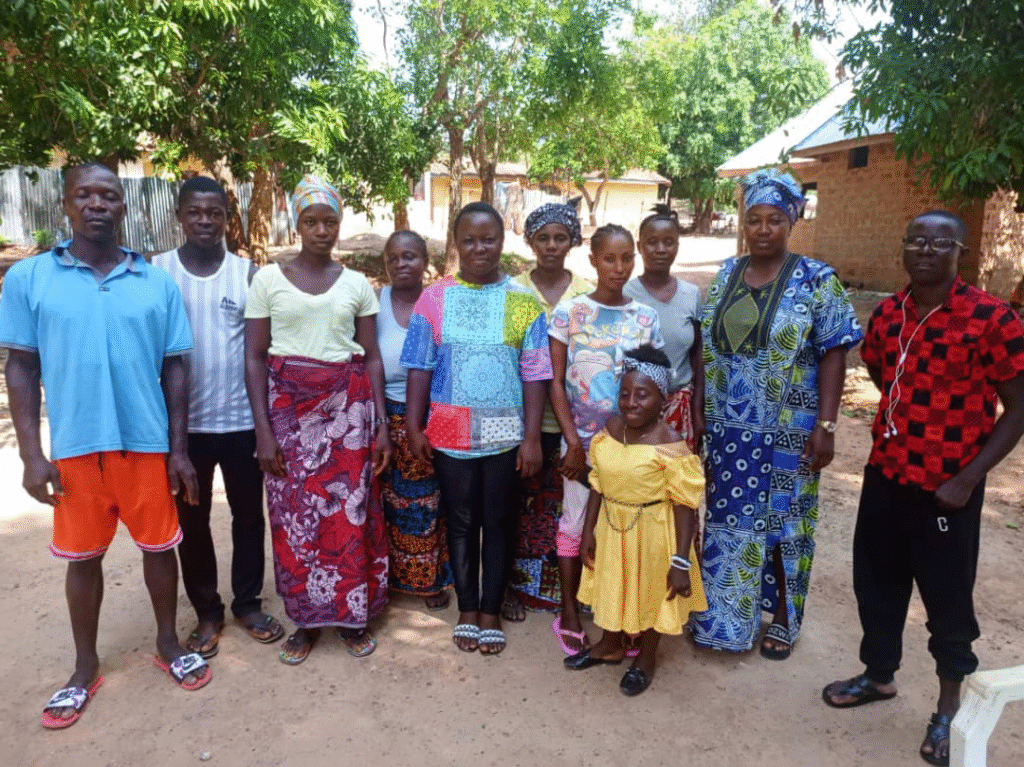
CMWE conducted a community outreach on Sexual and Gender-Based Violence (SGBV) in Jaledia Town, Kabala, Koinadugu District. The engagement brought together women, men, and key stakeholders to raise awareness on the prevalence and consequences of SGBV and explore collaborative approaches to prevention.
Speaking during the event, Madam Sarah Israella Koroma, Program Manager of CMWE, stated that the organization is committed to advocating for the rights and empowerment of young women and girls, leveraging the potential of the media to reaching out to young women and girls. She noted that the Centre continues to play a critical role in promoting gender equality and supporting the fight against SGBV through grassroots engagements and public education. She emphasized that working with communities is central to their mission of creating safer and more inclusive environments for women and girls.
A representative from the Ministry of Gender and Children’s Affairs, Mr Silvanus Conteh, acknowledged the growing concern over the rise in SGBV cases within Koinadugu District. He reiterated the Ministry’s commitment to combating the issue through awareness campaigns, support services for survivors, and community sensitization efforts.
One of the participants, Jennifer Posseh Mansaray representing the Little People of Sierra Leone, said she learnt a lot from the engagement. She mentioned the different types of violence; physical, emotional and financial. She mentioned a sexual penetration case in which she said the victim had severe bleeding and was rushed to the One-Stop-Centre. She commended CMWE for the outreach and promised to be an advocate of SGBV.
The outreach concluded with a renewed call for collaborative action to eliminate SGBV and uphold the rights and dignity of all women and girls.
Digital Marketing training for women sme's
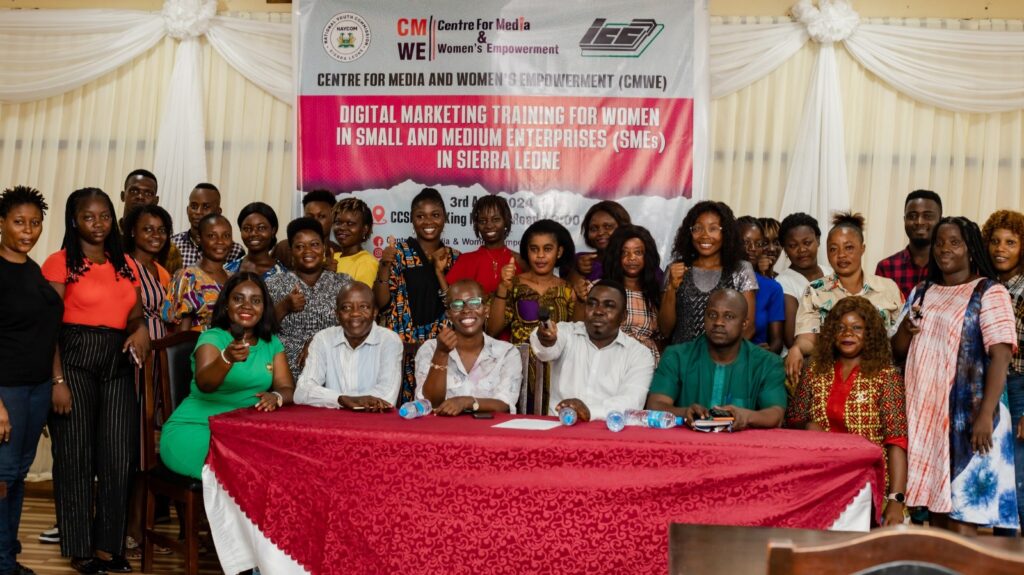
The Centre for Media and Women’s Empowerment (CMWE) in partnership with the National Youth Commission held a one-day pilot training for women in small and medium enterprises in digital marketing. The training brought together women in fashion design, gara tie dying, make-up and cosmetics and other skills to acquire knowledge in Digital Marketing skills to boost their businesses.
A participant Matilda Kobba said the training was beneficial to her as she learnt about branding and packaging which will attract customers to her business. She said she was grateful for the opportunity as the knowledge gained will help her to grow her business.
Freetown Flash Floods - A Perennial Problem For Residents
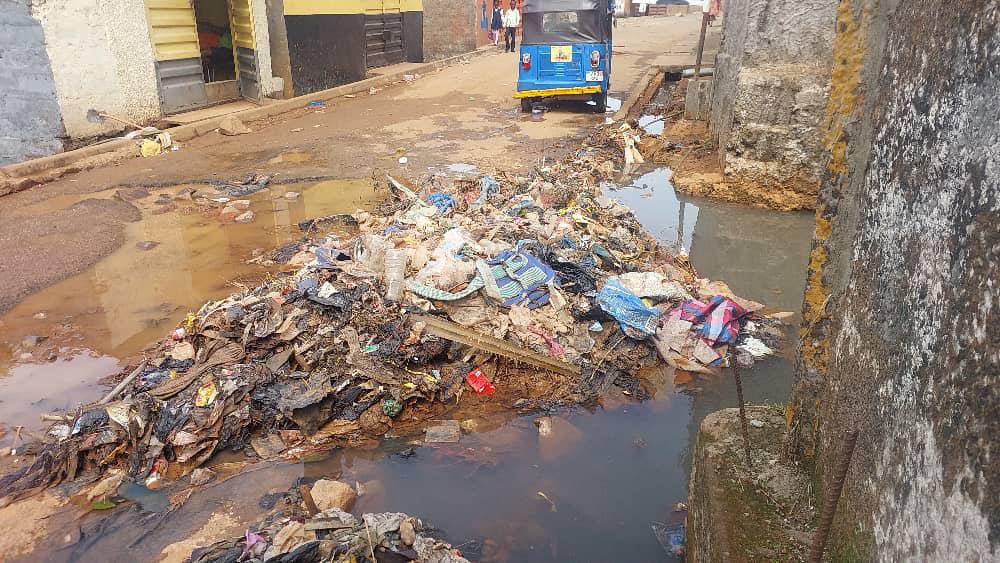
Freetown, the capital of Sierra Leone, is renowned for its landscape and rich history. However, like many cities situated in tropical climates, it faces challenges during the rainy season. Heavy rains not only provide relief from the heat but also bring significant challenges, particularly concerning the accumulation of dirt and debris on the streets.
During the rainy season, Freetown experiences intense downpours that can lead to flash floods. These rains wash dirt, mud, and debris from surrounding areas and the hills into the streets.
The construction of buildings, roads, and other infrastructure poses a heavy threat to easy flow of water as this development is mostly not accompanied by adequate drainage systems.
Waste management practices around the city of Freetown, is very poor with litters left unattended. When the rains come, this litter can be swept into the streets, worsening the dirtiness. Not only does this pose a visual nuisance, but it also attracts pests and can lead to health risks.
